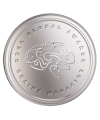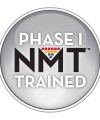ADHD and autism, also known as Autism Spectrum Disorder (ASD), are neurodevelopmental conditions that can significantly impact individuals’ daily functioning.
While there are many differences between autism and ADHD in adults, they share some overlapping symptoms, making accurate diagnosis and intervention crucial for effective management. ADHD tends to have persistent patterns of inattention, hyperactivity, and impulsivity.
Adults with ADHD may struggle with organization, time management, and maintaining focus, affecting their work and relationships. On the other hand, adult autism involves challenges in social communication and behavior, with individuals often displaying repetitive behaviors and restricted interests.
Understanding and figuring out if someone has ADHD or adult autism can be a bit complicated. Our blog is here to make this process easier for you to navigate the differences.
Adult Autism: Evaluation and Diagnosis
Diagnosing autism in adults involves a thorough evaluation process to understand an individual’s unique characteristics and challenges. Unlike childhood diagnoses, recognizing autism in adults can be complex due to the subtlety of symptoms and the development of coping mechanisms over time.
Healthcare professionals, including psychologists,use a comprehensive approach to assess adults for autism. The evaluation often includes a detailed clinical history, interviews, and observations of social interactions and communication behaviors. Additionally, standardized assessments and questionnaires may be employed to gather more objective information.
Diagnostic criteria for autism encompass challenges in social communication and the presence of restricted and repetitive behaviors. Some common indicators are difficulties understanding social cues, maintaining conversations, and forming meaningful relationships. Repetitive movements, intense focus on specific interests, and resistance to change may also contribute to the diagnosis.
As the diagnostic process unfolds, healthcare professionals must consider individual differences and cultural factors. A thorough and sensitive evaluation allows for accurate identification and ensures that adults with autism receive appropriate support and interventions tailored to their specific needs, fostering improved quality of life.
Autism Symptoms and Criteria
Comprising ASD is a diverse array of symptoms, with specific criteria used for diagnosis. Central to ASD are deficits in social communication and social interaction, marked by challenges in verbal and nonverbal communication, difficulties in forming relationships, and a tendency towards repetitive behaviors.
These symptoms vary widely in intensity and presentation, creating a spectrum that reflects the unique experiences of individuals with ASD. Recognizing and understanding these symptoms is crucial for early intervention and tailored support, fostering a more inclusive environment that acknowledges the diverse needs and strengths of autistic individuals.
Deficits in Social Communication and Social Interaction
Autism manifests primarily through deficits in social communication and social interaction, serving as critical diagnostic criteria. Autistic individuals often exhibit challenges in understanding and using verbal and nonverbal communication.
They may struggle with the most fundamental aspects of conversation, such as taking turns, maintaining eye contact, or understanding social nuances.
One hallmark of social communication deficits in autism is difficulty developing and sustaining relationships.
Autistic individuals may find it challenging to establish connections with peers, interpret social cues, or engage in reciprocal interactions.
The impairment isn’t solely limited to spoken language; it extends to nonverbal cues like body language and facial expressions, making social situations particularly complex for those with ASD.
Repetitive Behaviors
Repetitive behaviors represent a significant aspect of ASD, contributing to the diagnostic criteria and reflecting the diverse nature of the condition. Autistic individuals often engage in repetitive activities, gestures, or rituals as a way to cope with the challenges of their environment.
These behaviors can manifest in various forms, such as repetitive hand movements, body rocking, or insistence on maintaining specific routines. The fixation on sameness and resistance to change is a common trait among those with ASD, and disruptions to established routines may cause distress.
An autistic person might exhibit an intense interest in specific topics, objects, or patterns, displaying an in-depth knowledge or preoccupation with these subjects.
The presence of repetitive behaviors can serve as a coping mechanism, helping individuals with autism navigate the sensory and social complexities they may find overwhelming. However, these behaviors can also impact daily functioning and social interactions, posing academic, occupational, and personal challenges.
Autism Assessments for Adults
Autism assessments for adults is a comprehensive process aimed at identifying and diagnosing ASD in individuals who may have not received a childhood diagnosis. Recognizing that autism symptoms can manifest differently in adults, assessments typically involve a multidisciplinary approach, incorporating input from psychologists, psychiatrists, and other healthcare professionals.
The assessment often begins with a detailed clinical interview to gather information about the individual’s developmental history, social interactions, and behavioral patterns. Utilizing self-report measures and standardized questionnaires may help assess various aspects of social communication, repetitive behaviors, and sensory sensitivities.
Additionally, professionals may gather information from collateral sources, such as family members or close friends, to gain a more comprehensive understanding.
The process considers the individual’s unique strengths and challenges while aligning with diagnostic criteria outlined in widely accepted classification systems. Autism assessments for adults are essential for providing a distinct diagnosis, enabling individuals to access appropriate support services and interventions.
ADHD and Autism in Adults
ADHD and autism are neurodevelopmental conditions that can coexist in adults, presenting unique challenges and strengths. While distinct, they share some overlapping features, leading to a phenomenon known as comorbidity.
It is common for adults with both ADHD and ASD to face challenges with attention, executive functioning, and impulse control. Individuals may experience difficulties in sustaining attention, organizing tasks, and managing time effectively.
In addition, social interactions can be complex, with struggles in understanding social cues and maintaining relationships. Despite these challenges, individuals with comorbid ADHD and ASD often exhibit specific strengths. Hyperfocus, a characteristic of ADHD, can contribute to intense interests or skills in particular areas, aligning with the repetitive and focused behaviors often seen in ASD.
However, these strengths may be overshadowed by difficulties navigating social and organizational aspects of daily life. Assessing and diagnosing ADHD or autism in adults requires a thorough evaluation by healthcare professionals, considering both conditions’ nuanced presentations.
Tailored interventions, including behavioral therapies, social skills training, and, in some cases, medication, aim to address the specific needs of individuals with dual diagnoses. Recognizing and understanding the interplay between ADHD and ASD in adults is crucial for developing comprehensive strategies that empower individuals to leverage their strengths while addressing challenges for a more fulfilling life.
ADHD in Autistic Adults: Outcomes
Understanding the intersection of autism or ADHD in adults reveals a complex interplay that influences outcomes. Autistic adults with comorbid ADHD often face unique challenges in areas such as attention, executive functioning, and impulse control. These difficulties can impact daily life, work, and social interactions.
Despite these challenges, the coexistence of ADHD in autistic adults can also bring about distinctive strengths. Hyperfocus, a characteristic of ADHD, may contribute to intense focus on specific interests, aligning with the repetitive and detailed-oriented behaviors often observed in ASD.
However, the organizational and social difficulties may mitigate their strengths. Navigating the outcomes of ADHD in autistic adults involves tailored interventions, including behavioral strategies, psychoeducation, and, when appropriate, medication.
ADHD or Autism Evaluations?
The evaluation for ADHD or autism is a vital step toward understanding and addressing the unique needs of individuals. Collaborative, comprehensive assessments involving behavioral observations, clinical interviews, and standardized measures are essential for accurate diagnosis. Seeking professional evaluation, such as through BVPS, is crucial for tailored interventions. Early diagnosis and intervention empower individuals, leading to better outcomes and improved quality of life. Contact us today for a better tomorrow!







